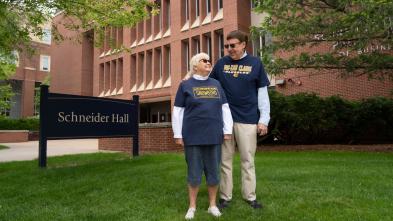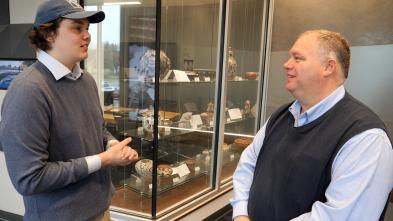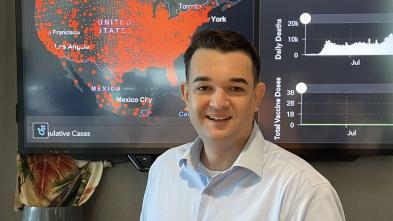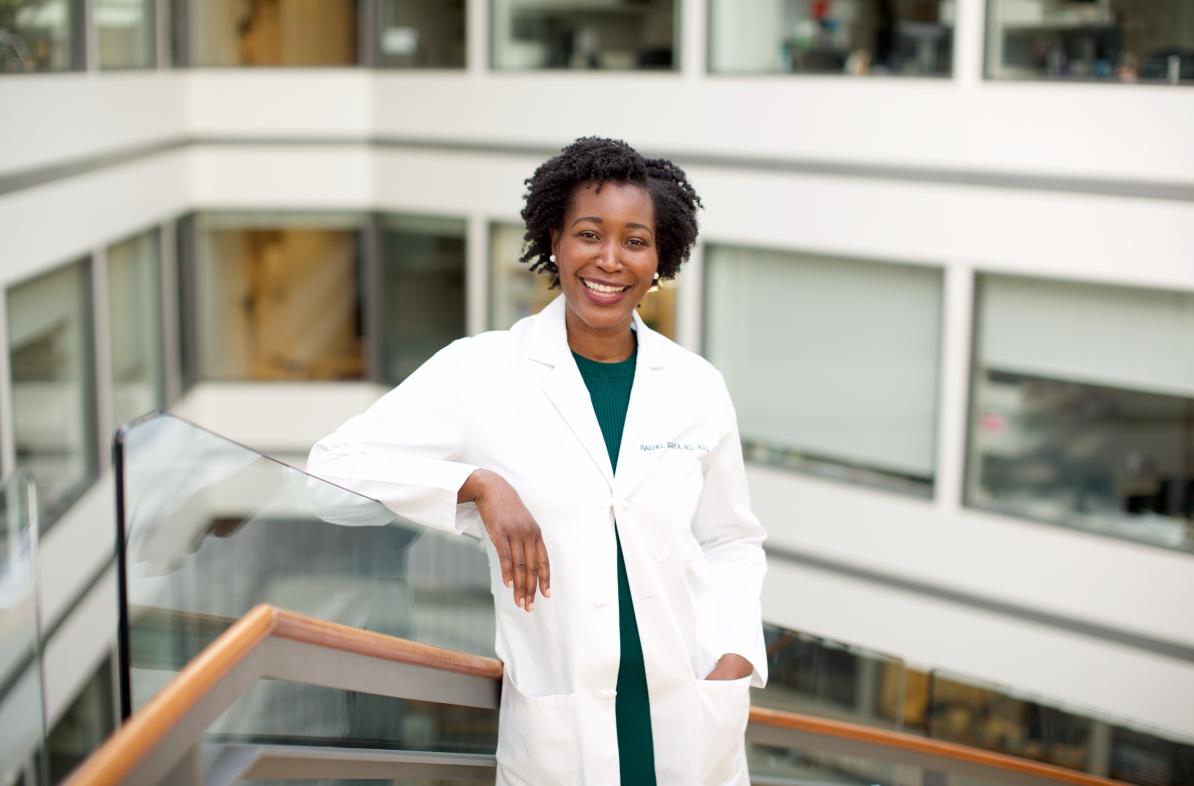
Blugold biology alumna promotes colon cancer awareness and screening
A practicing clinician, colorectal cancer researcher and assistant professor of gastroenterology and hepatology at Fred Hutchinson Cancer Research Center and the University of Washington in Seattle, Dr. Rachel Issaka has an important message to share: Know your family history, learn the signs and symptoms of cancer and begin screening as soon as you are eligible.
“Colorectal cancer is one of the most preventable cancers in the United States, through highly safe and effective screening,” Issaka, a 2005 UW-Eau Claire biology graduate, says. “Despite that fact, one in three eligible adults has never completed screening, and those numbers are higher in Black, Hispanic, Native American and Indigenous Alaskan populations.”
The American Cancer Society recently revised its recommendations for adults without family history of the disease to begin regular screening at age 45, down from the previous standard of 50 years of age.
While the student population at UW-Eau Claire is generally decades younger than the target age range, Issaka also has a message for students because colon cancer can and does appear in people of all ages.
“Regardless of age, no one should ignore the potential signs and symptoms of colon cancer,” she adds. “These can include blood or other sudden changes in the stool, unexplained weight loss or abdominal pain. Everyone should also learn their family history — this knowledge is powerful and can save lives.”
Practicing physician and researcher
Dr. Rachel Issaka says many believe a lack of symptoms means no colon cancer. "In fact, colon cancer is often asymptomatic, and symptoms may mean advanced cancer. If you have symptoms, see your doctor today. If not, then learn when to do screening."
Along with her practice in gastroenterology serving patients with a variety of digestive tract issues, Issaka also leads a team conducting clinical research in colorectal cancer at the Fred Hutchinson Cancer Research Center and the University of Washington, both in Seattle.
Her group investigates the barriers that prevent people among certain populations from completing colorectal screening and identifying risk factors that lead to the significant disparities in colorectal disease and outcomes observed in medically underserved populations.
For this work, Issaka recently was selected as the recipient of the inaugural Kathryn Surace-Smith Endowed Chair in Health Equity Research at Fred Hutchinson. According to the Feb. 22 news release, “The endowed chair will help advance Issaka’s research, which focuses on reducing colorectal cancer deaths and disparities, particularly among members of racial/ethnic minority groups and low-income populations, through increased screening and follow-up of noninvasive screening tests.”
The endowed chair also will fund innovative ways to address various logistical barriers revealed by Issaka’s research, barriers exacerbated by the COVID-19 pandemic.
“Much of our work occurs in safety-net populations, health care systems designed for patients who have lower income or education levels and as a result may not have consistent health insurance,” Issaka says. “We find that lack of screening has little to do with disease itself, but rather with the life circumstances in which people find themselves.
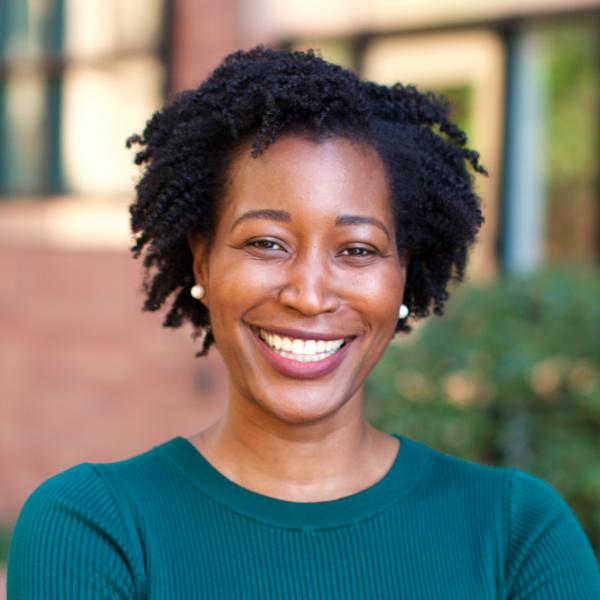
“A colonoscopy requires that a person has access to a doctor, that they can complete the bowel prep, that they have a stable job that allows time off for the prep and test, that they have a friend or family member to drive them on that day. Then add lack of insurance to that list — these challenges can become insurmountable. With our outpatient populations, we try to meet them where they are.”
Issaka says disseminating current and emerging technologies in screening to populations that experience the highest disparities gives her the most hope for removing barriers and reducing the disease.
“Noninvasive tests like the existing mail-in stool tests can be provided for patient populations, along with resources needed to follow up a positive test with a colonoscopy,” she says, noting that stool tests are best for detecting existing cancer, not all precancerous polyps that can be seen in a scope procedure.
“There are many ongoing studies into blood tests that could screen for these cancers — that is very exciting,” Issaka says. “With existing stool studies and potential blood tests on the horizon, our research group will continue to focus on ways to improve follow-up for patients who need to have a colonoscopy following an abnormal test result.”
A career that began as a Blugold
Since long before UW-Eau Claire had a formal research collaboration agreement with Mayo Clinic Health System in Northwest Wisconsin, students have found unique research opportunities with the globally renowned health system, and Issaka was one of those fortunate students during her time as a Blugold.
“I spent my summers in college participating in the Mayo Clinic Summer Undergraduate Research Fellowship (SURF) for biomedical research in Rochester, Minnesota,” says Issaka, who discovered the program through the biology department and followed up her first summer with a second SURF experience.
“These experiences at Mayo were really influential for me — they gave me a glimpse into the world of medical and clinical research. They provided my first experiences working in a lab at the bench, collaborating with other researchers and submitting our findings to scientific journals. My first publication came from this summer research. The SURF program still exists, opening doors for students to see what goes on outside the university — it’s truly incredible.”
After graduating from UW-Eau Claire with a major in biology and minor in chemistry, Issaka was uncertain of whether to pursue an M.D. or a Ph.D., as research had become a passion, but medical school had long been her goal.
After returning once more to work at Mayo Clinic in Rochester, she learned she could do both.
“After graduation I worked full time as a research technologist. I worked with a pulmonologist who was researching a rare lung disease called Lymphangioleiomyomatosis (LAM) that only affects women of childbearing age,” Issaka says. “This researcher was a practicing pulmonologist who also conducted extensive clinical research, and it opened my eyes to the type of research that could be accessible to me as an M.D.”
With the medical school decision made, Issaka ultimately completed medical school at the University of Michigan in 2010, a residency in internal medicine at the McGaw Medical Center of Northwestern University in 2013, followed by a chief residency in 2014 and a fellowship in gastroenterology and hepatology from the University of California, San Francisco, in 2017. That year Issaka also earned a master’s degree in clinical research at UCSF.
Reflecting on her undergraduate experience and her preparation for medical school, Issaka says she feels lucky to have enjoyed the atmosphere of support and collaboration she encountered at UW-Eau Claire, unlike the highly competitive climates experienced by some medical school colleagues from other undergraduate institutions.
“Pre-med programs can be cutthroat. I recall talking with friends who came from institutions where they said students would sabotage experiments to ensure they had the highest grade,” Issaka says. “I never experienced that at UW-Eau Claire. There was always a spirit of collaboration and everyone genuinely wanted to work together toward common goals.”
Support outside the Blugold classroom
As a Minneapolis native, Issaka says Eau Claire offered a good middle ground between her desire to leave her home state and her family’s desire to keep her close by.
“I was a first-generation college student, so for my family it was important for me not to be too far away,” Issaka says. ”I was able to take part in a visit to campus with other racial and ethnic minority prospective students, other people who looked like me and were considering UW-Eau Claire.”
The visit program, organized by then-director of the Office of Multicultural Affairs Jim Vance, provided Issaka with the personal connections that helped her see herself attending and feeling at home on campus.
“Being close to home and already making strong connections during those visits were the two reasons that really brought me to Eau Claire,” she says.
Making cultural connections continued to be valuable to Issaka’s student experience, and serving as president of the Black and Latino Student Alliance proved to be an excellent way to do that. At that time, Dr. Selika Ducksworth-Lawton, who Issaka says “took me under her wing,” was the faculty advisor for the student organization, and she recalls a capable young woman bound for important contributions and collaborations.
“Rachel was BSA president in 2000-01,” says Ducksworth-Lawton, a professor of history. “Always a joy, Rachel was brilliant and inspired, with a heart for service. I am very honored to have been an influence. She worked hard across racial lines to help Black and Latino students work together and succeed.”
In addition to the personal and cultural support she found with BSA, and financial support she received through the UW-Eau Claire Foundation, a volunteer opportunity Issaka experienced as a Blugold had a lasting impact on not just her goals but on her overall outlook on the health system from the perspective of historically underserved individuals, insight clearly evidenced in her work to this day.
“As a student, I volunteered at the Eau Claire Free Clinic, which was my first medical experience of any kind,” she says. “As a first-generational college student from a working-class family, I didn't have medical insurance when I was in Eau Claire. That free clinic was a place where I was able to interact with people who faced similar challenges in the pursuit of health care.
“Understanding how they navigated health systems when they needed care was really a valuable experience for me. A practical skill then and one that still informs the work that I do now, advocating for those with the greatest needs within our health care system.
“Medical bills are the No. 1 cause of bankruptcy in this country, a sad fact that was not lost on me then and is certainly not lost on me now. There are ways we can all make a difference. I would tell any young student to look for ways they can contribute. Contribution can come in many forms — from working directly with individuals in places like the free health clinic or with groups that are trying to change upstream health policies.”
You may also like
